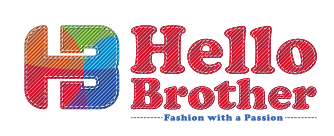UX Design Services
Every pixel placed with purpose.
Our top 1% LATAM UX designers create intuitive user experiences and interfaces that drive engagement and increase conversions.

30+ companies rely on our top 1% tech talent.




UX Design Services We Provide
User Research and Analysis
User research is essential to the UX design process. We use tools like Hotjar and Google Analytics to understand user behavior, along with traditional methods like user interviews, ethnographic studies, and surveys.
This evidence-driven approach ensures our designs are not based on guesswork, but reflect actual user needs and preferences.
Custom User Experience Design
Craft seamless and intuitive digital experiences targeted to the needs of your audience. Guided by principles of cognitive psychology and design thinking, we map out user flows and use tools like Miro and Figjam for collaborative ideation. By mapping customer journeys, we uncover pain points and opportunities to delight users.
UI and Interaction Design
Transform rough concepts into beautiful, functional user interfaces. Using products like Adobe XD and Figma, we craft interfaces where every button and icon has a clear purpose. We make sure user interactions are both aesthetically pleasing and meaningful.
Wireframing and Interactive Prototyping
Before diving into development, it’s crucial to visualize the product’s architecture. With tools like Axure and InVision, we create wireframes that lay out the blueprint. Then, we transform them into interactive prototypes. This not only allows stakeholders to get a tangible feel of the product but also ensures we identify and address potential edge cases and dependencies early.
Web and Mobile App UX/UI Design
Whether you need a responsive website or a native mobile app, we work with front-end developers to ensure smooth performance and consistency across every device. Leveraging frameworks like Bootstrap for web apps and SwiftUI for iOS apps, we create adaptable UIs that offer a delightful user experience.
Navigate
UX Design Services We Provide
Key Facts About UX Design Services
UX Design Best Practices
Why Choose Voltera for UX Design Services
Our process. Simple, seamless, streamlined.
Frequently Asked Questions (FAQ)
Key Facts About UX Design Services
- Main Reasons to Consider Outsourcing
- Why is UX so important
- Industries that Benefit Most from UX Design Services
Often, internal teams find themselves overwhelmed or lacking the necessary tools to craft and refine user experiences. This is where outsourcing your UX design services comes into play. Many businesses opt for this approach not only to cut down on costs but also to leverage the expertise of specialized UX designers.
Here are 6 main reasons to consider outsourcing:
Collaborate with Top Specialists: By outsourcing, you get to work with UX specialists who have experience across a wide range of industries and products. They can bring different perspectives and approaches to your products. The result? Beautiful, user-friendly designs aligned with industry best practices.
Focus on Your Strengths: Outsourcing UX design allows your company to focus on its core activities and competencies, while the design experts handle the user experience aspects of your project.
Stay Up to Date: Outsourced designers or teams are up to date with the latest UX design trends. This means you’ll get a more engaging product, gain additional insights, and learn UX best practices.
Mitigate Risk: Professional UX design teams have well-established processes to mitigate risk and stay on top of regulations while ensuring maximum efficiency.
Scale Faster: Adjust your engagement as needed based on your project’s evolving demands. Outsourcing gives you greater flexibility than relying solely on in-house designers.
Save Money: Outsourcing can often provide a cost saving as well as greater flexibility, when you take into account fully loaded costs like salaries, benefits, tools, and sick/vacation pay.
Good UX not only improves user engagement, it also promotes a positive impression of your brand. Attractive and intuitive interfaces reduce friction and improve conversion rates.
Conversely, poor UX can lead to user frustration, increased abandonment rates, and lower engagement and/or conversion rates.
While most industries can benefit from good UX design, some need it more than others. Here are some examples:
E-commerce & Retail
Need: Online shopping platforms require intuitive navigation, clear product displays, and streamlined checkout processes.
How UX design helps: Enhanced shopping experiences reduce cart abandonment, increase sales, and foster brand loyalty.
Education & E-Learning
Need: Online learning platforms must be engaging, easy to navigate, and support various multimedia formats.
How UX design helps: Improved learning paths, easy-to-use dashboards, and interactive content enhance learning outcomes and user engagement.
Travel & Hospitality
Need: For example, review, booking, and reward platforms should offer seamless search, selection, and payment processes.
How UX design helps: Optimized search filters, clear pricing displays, and straightforward booking processes increase booking rates and customer satisfaction.
Entertainment & Media
Need: Media platforms, streaming services, and music apps should offer easy content discovery, smooth playback, and personalized user experiences.
How UX design helps: Recommendations engines, intuitive media controls, and adaptive UIs based on user behavior enhance engagement.
SaaS (Software as a Service)
Need: Platforms must onboard users efficiently, offer clear dashboard views, and ensure users can easily access features.
How UX design helps: Guided onboarding, clear feature hierarchies, and feedback loops reduce churn and increase user satisfaction.
UX Design Best Practices
User-Centered Design (UCD) is at the heart of the UX design process. This allows your digital experiences to better align with the end user’s needs and expectations.
UX designers are attuned to user emotions, goals, and pain points. The initial planning reflects insights gleaned from user research.
Design teams craft detailed user personas, ensuring their UX services cater to end-users’ needs.
Regularly gather feedback with user testing tools like Hotjar or UserTesting. This will help refine the user interfaces further, making sure the design solutions meet business goals.
Maintaining a consistent user interface is key to offering top UI design services. This consistency fosters a sense of familiarity and trust in your product.
Implement style guides and design systems to maintain consistency. Tools like Figma can help software developers and UX designers adhere to these guidelines.
Use recognized patterns in user interfaces. For example, an e-commerce cart icon is universally known. Reinventing the wheel might steer the user journey off course.
To ensure clarity in UI design, the design team must maintain consistent labeling. For example, if “Login” is used, “Sign In” should be avoided unless there’s a distinct use-case.
Designing for accessibility is important to UX design services. Accessible design not only aligns with ethical standards but can offer a competitive advantage as well.
Ensure there is sufficient color contrast between text and background colors to enhance readability for users with visual impairments. Avoid conveying information through color alone because colorblind individuals will miss this information.
Use legible fonts and ensure text is resizable without losing content or functionality. Provide a solid hierarchy with headings and sub-headings to help screen readers navigate the content.
Ensure your website or app is fully navigable and operable with a keyboard, catering to those who cannot use a mouse.
Include alt text for images and provide captions or transcripts for audio and video content.
100s of companies worldwide trust us for their Ux Design services.
Why Choose Voltera for UX Design Services
Rigorous Vetting Process
All of our bilingual tech talent undergo a rigorous, multi-step vetting process. We evaluate their technical and interpersonal skills through a series of in-depth interviews and assessments. Onboard them fast – often within 2-3 weeks.

Top 1% of UX Designers
Access top 1% LATAM UX designers who have completed thousands of projects for 500+ clients since 2009. Our work spans 100+ diverse sectors, which attests to the depth and breadth of our expertise.
Backed by User Research
We remove the guesswork from design. By grounding our work in user research, we minimize the risk of failed or mediocre products with poor adoption. This up-front work means in the end, each pixel has been placed with purpose.

Our process. Simple, seamless, streamlined.

Step 1
Discuss your requirements.
We’ll discuss your business goals, budget, timeline, and need for quality assurance services. During this initial call, we’ll determine if you need a dedicated software development team or one of our other engagement models.
Step 2
Create a plan and assemble a team.
We’ll craft a plan outlining our approach to QA testing, based on your requirements and engagement model. We’ll also assemble your team of QA specialists.
Step 3
Get to work.
Our QA engineers and testers will get to work. Throughout the software testing process, we will track metrics and keep you informed about our progress to ensure you stay up to date.
Frequently Asked Questions (FAQs)
User testing is a pivotal component of the UX design process. It provides actionable insights into how end users interact with user interfaces. Using platforms like UserTesting and tools like Hotjar, UX designers can identify pain points, validate design solutions, and ensure the user journey aligns with business goals.
UX design services bridge the gap between user needs and software functionality. The design team provides high-fidelity mockups, user research, and information architecture. These help software developers build intuitive and user-centric digital products. A collaborative approach ensures a better final product.
While closely related, the customer journey focuses on the broader experience of a customer with a brand or business—from awareness to loyalty. In contrast, the user journey zeroes in on specific interactions and touchpoints within digital products, ensuring each step is optimized for the end user’s needs.
UI design services emphasize the aesthetic aspects, including graphic design and user interfaces. In contrast, user experience design services dive deeper into usability, information architecture, and the overall user journey. However, both are important if you want to create a competitive, holistic design solution.
Information architecture structures and organizes content within digital products, ensuring users can find information easily. A well-constructed information architecture enhances usability, guides the user journey, and directly impacts the achievement of business goals.
Looking for reliable UI UX development services? See how we can help.

